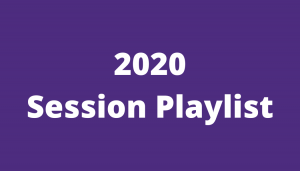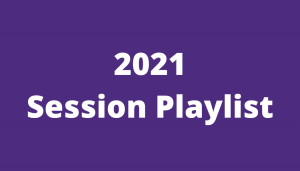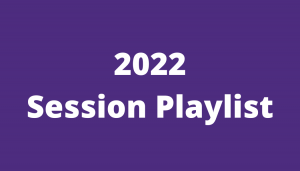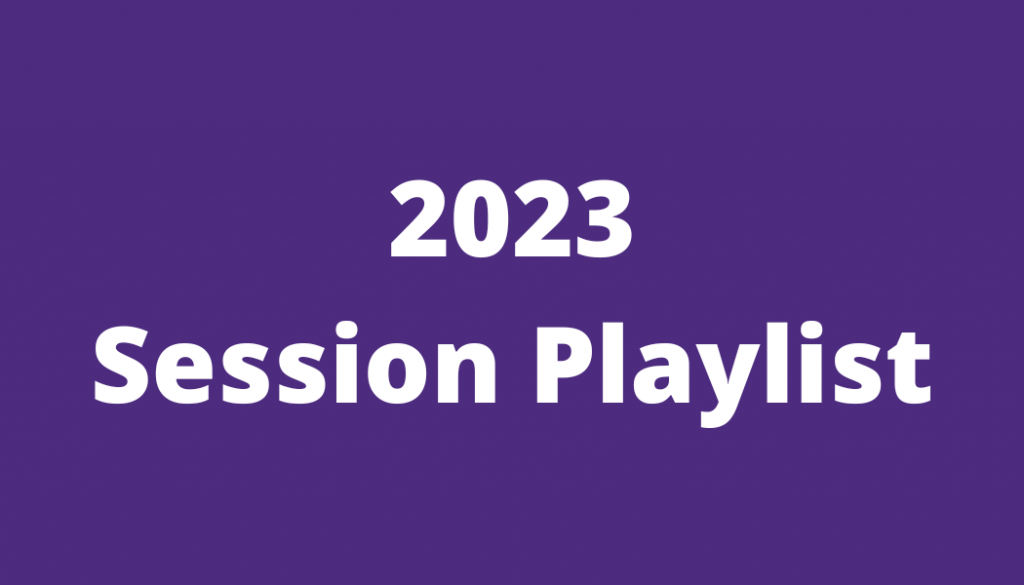2024 Session Archive:
*Session 1: A SIM Literacy Intervention: Collaboratively Teaching The Word Mapping Strategy in Inclusive Settings
June 6th, 10:00 AM – 12:00 PM
Presented by: Dr. Monica Harris (Grand Valley State University, Dept of Teaching & Learning/SIM PDer)
YouTube Video: https://youtu.be/DdoFN8JrSLI
- THIS SESSION IS PART OF A SIM (Strategic Instruction Model) SERIES PRESENTED BY UCA’S GRADUATE PROGRAMS IN SPECIAL EDUCATION AND LITERACY.
The purpose of the session is to demonstrate how educators can deliver evidence-based practices to a wide range of learners. This session will focus on how educators can collaborate using The Word Mapping Strategy (WMS), which embeds the Higher Leverage Practices (HLPs) to deliver an instructional approach found to increase student vocabulary knowledge and their ability to predict the meaning of unknown words as they read. During this session, participants will be able to: (1) state why teaching vocabulary is key to student success; (2) make connections between the WMS and the HLPs to support student learning; and (3) collaborate using an explicit instructional process to deliver an evidence-based practice, the WMS, in inclusive environments. Participants may wish to purchase the guidebooks for this intervention before or after the session.
UCA COE Strategic Instruction Model PD Series Summer 2024 Info
UCA Mashburn Center for Learning SIM Information
Materials Order Form (You must use this link to order your materials or you will not receive the discount)
AI for Differentiation
June 11th, 10:00 AM – 12:00 PM
Presented by: Dr. Michelle Buchanan (UCA – Department of Teaching & Learning)
YouTube Video: https://youtu.be/UZkswGF43CE
Participants will explore and create with different AI tools to simplify planning for differentiation with UDL.
Coping with Stress: Good Health Practices for Teachers
June 11th, 2:00 PM – 4:00 PM
Presented by: Dr. Odunola Oyeniyi (UCA – Department of Leadership Studies) and Stephanie Best (UCA – Department of Leadership Studies)
YouTube Video: https://youtu.be/R317wQoSP1A
Self-care is essential for anybody in a profession where burnout is an issue, including teachers. Teachers put a lot of themselves into their jobs and may need help acquiring a self-care toolbox that allows them to cope with the stresses of their work. Attendees will gain insight that can help them take better care of their students by taking better care of themselves.
Curious How to Calculate Growth?
June 13th, 10:00 AM – 12:00 PM
Presented by: Jeana Williams (Arkansas Public School Resource Center)
YouTube Video: https://youtu.be/RBSBdzR805k
In this session, we will learn how individual student growth is quantified and collectively used in the school accountability system. We will talk about value-add growth and value-add measures and how that data can be used to help guide and make instructional decisions as a teacher and an administrator.
*Session 2: A SIM Content Enhancement Intervention: The Question Exploration Routine
June 13th, 2:00 PM – 4:00 PM
Presented by: Gia Taylor, Ed.S (Northcentral Arkansas Education Service Cooperative (DESE)/SIM PDer)
YouTube Video: https://youtu.be/2Lp-CLVHSNQ
- THIS SESSION IS PART OF A SIM (Strategic Instruction Model) SERIES PRESENTED BY UCA’S GRADUATE PROGRAMS IN SPECIAL EDUCATION AND LITERACY.
Teachers will use the Question Exploration Routine to help students understand a “critical question” and to arrive at a main idea answer. Teachers will help students learn how to break apart a large question into smaller, more manageable questions, answer those questions, arrive at the main idea answer, apply the main idea to the subject area or related issue, and then generalize the main idea answer to solve a problem or apply it to the real world. This intervention is targeted for use in inclusive classrooms but can be adapted to provide specialized instruction for Tier 2 and Tier 3 levels of support within the RTI framework. This intervention specifically supports the provision of scaffolded, direct, explicit instruction in teaching cognitive and metacognitive strategies in the learning content. Participants may wish to purchase the guidebooks before or after the session.
UCA COE Strategic Instruction Model PD Series Summer 2024 Info
UCA Mashburn Center for Learning SIM Information
Materials Order Form (You must use this link to order your materials or you will not receive the discount)
*Session 3: SIM Instructional Best Practices: Going Beyond Accommodations and Modifications by Implementing Specially Designed Instruction with SIM
June 18th, 10:00 AM – 12:00 PM
Presented by: Dr. Jocelyn Washburn (Director of Professional Development, University of Kansas Center for Research on Learning/SIM PDer)
YouTube Video: https://youtu.be/FlJTFPVuTnU
- THIS SESSION IS PART OF A SIM (Strategic Instruction Model) SERIES PRESENTED BY UCA’S GRADUATE PROGRAMS IN SPECIAL EDUCATION AND LITERACY.
Specially designed instruction (SDI) is the legal mandate for educators to make adaptations or modifications to the content, methodology, or delivery of instruction to address the unique needs of a student with a disability (IDEA). Co-teachers report that students receive accommodations and modifications, but less often receive specially designed instruction (e.g., King-Sears, 2021). SDI can be provided through The Strategic Instruction Model (SIM) by providing educators with a flexible framework of evidence-based Learning Strategies and Content Enhancement Routines to support the diverse learning needs of students. SIM promotes explicit, scaffolded instruction with clear, step-by-step explanations and repeated practice to master academic content, which is particularly beneficial for students with disabilities in accessing the grade-level curriculum and achieving academic success. SIM emphasizes the importance of ongoing assessment and progress monitoring to inform instructional decision-making and ensure that students with disabilities are making meaningful progress toward their learning goals. Featured examples from SIM will be the Framing Routine and the SMARTER Planning and Instructional Cycle. Participants may wish to purchase the guidebooks before or after the session.
UCA COE Strategic Instruction Model PD Series Summer 2024 Info
UCA Mashburn Center for Learning SIM Information
Materials Order Form (You must use this link to order your materials or you will not receive the discount)
*Session 4: SIM Implementation: Supporting Adolescent Literacy for Successful School Change
June 18th, 2:00 PM – 4:00 PM
Presented by: Pam Leitzel (Learning Curve Consultants/SIM PDer), Dr. Paula Crawford (RedDoc Consulting, Inc./SIM PDer), Dr. Karen Mitchell (Director of Secondary Education with Stanly County Schools in North Carolina/SIM PDer)
YouTube Video: https://youtu.be/FV6T_P2ii0k
- THIS SESSION IS PART OF A SIM (Strategic Instruction Model) SERIES PRESENTED BY UCA’S GRADUATE PROGRAMS IN SPECIAL EDUCATION AND LITERACY.
It is increasingly important today for adolescents to reach higher levels of literacy in order to be successful in school and to experience later success in life. However, there is no easy fix to advancing adolescent literacy, especially when it comes to addressing the needs of struggling adolescent readers. It is a complex task that requires a concentrated team effort. This session will present four critical components that need to be embedded in any successful school-wide focus on literacy: leadership, data, evidence-based practices, and professional development. Participants will also have an opportunity to learn about the Strategic Instruction Model (SIM) and its wide variety of research-validated instructional tools that help teachers address the literacy needs of all students. When combined with the critical components of a school-wide plan, SIM can help foster a culture of success and act as a catalyst for real change.
UCA COE Strategic Instruction Model PD Series Summer 2024 Info
UCA Mashburn Center for Learning SIM Information
Xtreme Reading Overview and Sampler
Xtreme Reading Resource Links
A Deeper Dive into Twice-Exceptional Education
June 20th, 9:00 AM – 3:30 PM
Presented by: Dr. Claire Hughes (Cleveland State University)
- THIS SESSION COUNTS FOR 6 HOURS OF PROFESSIONAL DEVELOPMENT
- THIS SESSION WILL NOT BE RECORDED
Gifted children with disabilities are often confusing and confounding to themselves and others. This advanced presentation explores twice-exceptional children from diverse viewpoints: their characteristics and needs, educational strategies, mental health supports, and collaboration approaches. This session will explore participant experiences over the past year with twice-exceptional learners and allow an opportunity to share practice-based evidence for instructional interventions.
Learning Through Lenses: A Global Photo Journal Experience
June 27th, 10:00 AM – 12:00 PM
Presented by: Dr. Erin Shaw (UCA – Department of Leadership Studies) and Dr. Allison Freed (UCA – Department of Leadership Studies)
YouTube Video: https://youtu.be/yWYpcIPuPeA
This session will showcase student experiences from the recent Study Abroad program in Northern Ireland. Through a photo journal assignment, students documented their learning journey related to educational technology, library media, and global competency development in Northern Irish schools and libraries. The presentations will explore how these experiences connect to fostering peace-building skills in school children and contribute to the UN Sustainable Development Goals (SDGs).
*Session 5: A SIM Literacy Intervention: The Inference Strategy
June 27th, 2:00 PM – 4:00 PM
Presented by: Karen Robinson, M.Ed. (Southeast Arkansas Educational Service Cooperative (DESE)/SIM PDer)
- THIS SESSION WILL NOT BE RECORDED
- THIS SESSION IS PART OF A SIM (Strategic Instruction Model) SERIES PRESENTED BY UCA’S GRADUATE PROGRAMS IN SPECIAL EDUCATION AND LITERACY.
The workshop is a two-hour workshop to teach the Inference Strategy to teachers for Tier 1 or interventionists in Tier 2 in grades 4-12. Collaborative arrangements between general education and interventionists to ensure that stents learn and can apply the strategy will be addressed. This Learning Strategy is a part of the Strategic Instruction Model and is designed to help struggling learners find clues to questions within text, identify the type of questions to help them answer questions correctly. This strategy gives students a systematic way to approach a text when the goal is to answer a set of questions. This intervention specifically addresses the High Leverage Practices for Inclusive Classrooms associated with HLP 14, but demonstrates how many of the instructional HLPs can be integrated. Participants may wish to purchase the guidebooks for this intervention before or after the session.
UCA COE Strategic Instruction Model PD Series Summer 2024 Info
UCA Mashburn Center for Learning SIM Information
Materials Order Form (You must use this link to order your materials or you will not receive the discount)
Session Handouts
Let’s Talk About Some Great Books!
July 2nd, 10:00 AM – 12:00 PM
Presented by: Dr. Erin Shaw (UCA – Department of Leadership Studies), Dr. Amy Thompson (UCA – Department of Elementary, Literacy, and Special Education), and Dr. Jeff Whittingham (UCA – Department of Teaching and Learning)
YouTube Video: https://youtu.be/QgVz7tvyQ8Y
Dr. Erin Shaw, Dr. Amy Thompson, and Dr, Jeff Whittingham will booktalk a variety of picture, middle grade, and young adult books. Participants will receive a bibliography of the books presented.
High Leverage Practices for Inclusive Classrooms: Taking an Inside Look
July 9th, 2:00 PM – 4:00 PM
Presented by: Dr. Brandy Walthall (UCA – Department of Elementary, Literacy, and Special Education)
YouTube Video: https://youtu.be/bfmL23QmAuI
The High Leverage Practices (HLPs) for Inclusive Classrooms are a set of 22 instructional practices approved by the Council for Exceptional Children that are essential to effective teaching and fundamental to supporting student learning of students with disabilities. Divided into four practice areas n (i.e., collaboration, assessment, social/emotional, and instruction) these practices have been shown to improve outcomes for diverse learners, including students with disabilities, enrolled in inclusive K-12 general education classrooms. Examples of those practices have been embedded in the intervention presentations offered this summer in the SIM PD Series. In addition, these 22 HLPs have been explicitly integrated into UCA’s graduate and undergraduate coursework. This session will describe each HLP and explore implementation examples so that session participants will better understand these practices and their importance to inclusive teaching.
Ceedar Center: High Leverage Practices Self Assessment Tools
*Session 6: SIM Instructional Best Practices: The Cue-Do-Review Instructional Sequence
July 11th, 10:00 AM – 12:00 PM
Presented by: Drs. Renee Calhoon and Patty Kohler-Evans (UCA – Department of Elementary, Literacy, and Special Education)
- THIS SESSION WILL NOT BE RECORDED
- THIS SESSION IS PART OF A SIM (Strategic Instruction Model) SERIES PRESENTED BY UCA’S GRADUATE PROGRAMS IN SPECIAL EDUCATION AND LITERACY.
This session is for teachers to learn about the Cue-Do-Review Instructional Sequence and how it aligns with what they already do to engage students at the beginning, middle, and end of a lesson. They will also use a self-evaluation tool to examine their current teaching practices that align with the Cue-Do-Review Instructional Sequence. Based on their new learning and reflections, teachers will create an action plan for implementing this evidence-based practice in their planning and leading for student learning.
UCA COE Strategic Instruction Model PD Series Summer 2024 Info
UCA Mashburn Center for Learning SIM Information
Promoting Executive Function: The Foundation for Teaching Students to be Independent and Successful
July 11th, 2:00 PM – 4:00 PM
Presented by: Dr. Deanna Kay Rice (UCA – Department of Elementary, Literacy, and Special Education)
THIS SESSION WILL NOT BE RECORDED
Executive function is the key to learner independence and is imperative for student success. Students who are neurodivergent tend to have deficits in executive functioning and need direct, explicit instruction to develop the self-management skills and strategies required for independent living. Executive function and the processes required to successfully start, maintain momentum, and complete tasks serve as the basis for being able to implement any intervention designed to promote effective and efficient task completion, including the ability to learn strategically. Participants will gain information regarding the defining characteristics of executive functioning skills and leave with a plan and resources for supporting learner independence.
30 Time-Saving Tech Tips for Teachers
July 16th, 10:00 AM – 12:00 PM
Presented by: Dr. Jessica Herring-Watson (UCA – Department of Teaching and Learning) and Noël Gieringer (UCA – Department of Teaching and Learning)
YouTube Video: https://youtu.be/0X6cwtWp_ZI
This interactive session will engage participants in exploring 30 time-saving tips for using technology to make teaching and learning more engaging, efficient, and effective. We’ll work through Apple’s “30 Time-Saving Tips for Teachers” and provide step-by-step tutorials and time for practice to explore how to get the most out of the devices available in your classroom, whether you’re working with iPads, Chromebooks, or other devices.
Internationalizing the College Student Experience “At Home”
July 16th, 2:00 PM – 4:00 PM
Presented by: Dr. Evan Faidley (UCA – Department of Leadership Studies), Dr. Allison Freed (UCA – Department of Leadership Studies), and Krittika Grau (Case Western Reserve University)
THIS SESSION HAS BEEN CANCELLED
When we think of international education, we often turn to terms like “study abroad,” “mobility,” and “saving money to travel.”In a time where technological advancements, faculty-staff collaborations, and budgetary constraints inform the in- and out-of-class learning experience of our college students, we should think of how we can bring the international experiences to our students “at home” considering study abroad came to a stop during the pandemic. In this session, faculty and staff of higher education will gain a better understanding and develop a plan to integrate the principles of “internationalization at home” in their curricular, programmatic, and environmental work.
Writing the Way to Reading Success: The Power of Handwriting Instruction
July 18th, 10:00 AM – 12:00 PM
Presented by: Dr. Amy Thompson (UCA, Department of Elementary, Literacy, and Special Education) and Ms. Sheri Hight (UCA, Adjunct, Department of Elementary, Literacy, and Special Education)
YouTube Video: https://youtu.be/aok-JzAJUoE
Discover the profound impact of handwriting on literacy development in “Writing the Way to Reading Success: The Power of Handwriting Instruction.” This session explores the strong connection between handwriting and reading skills, emphasizing the importance of explicit, systematic handwriting instruction in early education. Learn how handwriting lays the groundwork for reading success and how integrating effective handwriting instruction into the curriculum can significantly enhance overall literacy outcomes. Join us in understanding the cognitive benefits of handwriting and exploring strategies for implementing engaging and relevant handwriting instruction in the classroom or during intervention.




